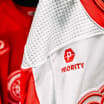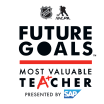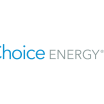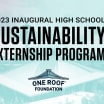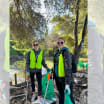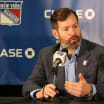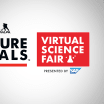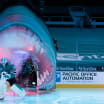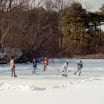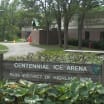The NHL is expanding its partnership with the National Environmental Education Foundation (NEEF) with a greater focus on youth engagement and environmental awareness through activities and content for an education on topics that will aspire to help build healthy and vibrant communities where younger fans live, work and play.
NHL partnership helping to engage youth in environmental awareness
Teaming up with NEEF to create interactive STEM curriculum; League teams praised for green technology
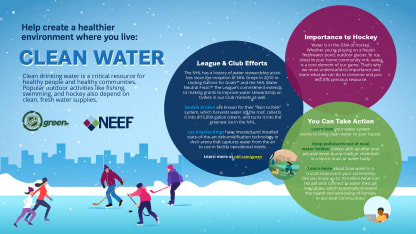
Resources will engage and entertain all ages with lessons on science, technology, engineering and math (STEM), a problem-solving curriculum activity guide and offerings for NHL clubs to engage on this content in their local markets. A legacy initiative will be offered in classrooms of markets representing the 2023 Stanley Cup Final in partnership with the teams and Green Sports Alliance.
The Greening STEM model is a creative approach to developing a 21st century skillset. The plans in place will delve further into green initiatives, recycling and protecting water quality and the impact on communities. The goal is knowledge and ultimately exposure to these topics and concepts through an engaging and interactive manner in lieu of a simple lecture.
"It's not just sitting in the classroom and learning," NEEF interim president Sara Espinoza said. "It's actually getting out in the schoolyard or even out with a community partner and collecting data and thinking about how those issues impact the local community. Activating that interest in understanding the local environment and also building some agency and helping them see that they can take action and develop solutions at the local level to some of these environmental issues."
RELATED: [NHL Green coverage]
NEEF is taking a three-prong approach to promote awareness of environmental issues important to hockey:
Clean air
The Seattle Kraken, Minnesota Wild and New York Islanders each have set new standards for better air quality in and out of their rinks. The Kraken offer free public transit access passes to Climate Pledge Arena. Ride-sharing options and bike rack maps are available to those visiting Xcel Energy Center in St. Paul, Minnesota. The Islanders and UBS Arena recommend taking advantage of the Long Island Rail Road's increased service to and from the Elmont, New York, train station and electric shuttles making round trips to the Emerald parking lot a half mile away.
Clean water
The 2011 Stanley Cup Final was the first water-neutral series in NHL history. The League tracked the total water used -- everything from rinks to faucets -- at host venues Rogers Arena (Vancouver Canucks) and TD Garden (Boston Bruins). Gallons for Goals, a season-long commitment focusing on the issue of freshwater scarcity, was established Jan. 17, 2012. Additionally, the League has executed water stewardship projects and other water awareness programs since 2011.
The Los Angeles Kings use an advanced environmental air-management system at Crypto.com Arena that helps capture water from the air to be stored in water tanks for non-potable water uses and dehumidification technology. Climate Pledge Arena's "Rain to Rink" system takes enough rainwater to fill a 15,000-gallon cistern from its roof and uses it to make the greenest ice in the NHL.
Less litter
The Kings, Anaheim Ducks and San Jose Sharks each hold beach cleanups to remove pollutants out of waterways. The Washington Capitals and Philadelphia Flyers work with the nonprofit Leveling the Playing Field to collect and donate hockey equipment to players in underserved communities. The Colorado Avalanche, through the Ball Corporation, are holding the Green Assists Program Metro Denver
recycling challenge
. Through May 14, fans can submit photos of recycling aluminum cans, bottles, cups, or other aluminum beverage packaging for a chance to win a grand prize of Avalanche merchandise. Fans are eligible to participate in the team's Sustainable Summer drive-thru in May.
"What's powerful about sports is that these teams can model the kind of behavior and encourage the kind of behavior that we want people to engage in," Espinoza said. "I think that's one of the goals with this infographic and information, is to use those well-known teams to say look at what they're doing, and what they're encouraging, and you can do this in your community, too."
Espinoza transitioned toward the human element of her studies near the end of her undergraduate tenure at Bucknell University, where she earned a Bachelor of Arts in animal behavior and ethology. She wanted more of an interactive perspective on the natural world and received a master's degree in environmental management at Duke University. Stops at the World Wildlife Fund and The Jane Goodall Institute led her to NEEF, where for 18 years she has explored new themes and concepts while tracking emerging trends in environmental education.
"Drawing those connections is powerful," Espinoza said, "and I think as sports continue and as hockey continues to invest in these kinds of actions and these kinds of communications with fans, it really will motivate more of these behaviors at the local level."


